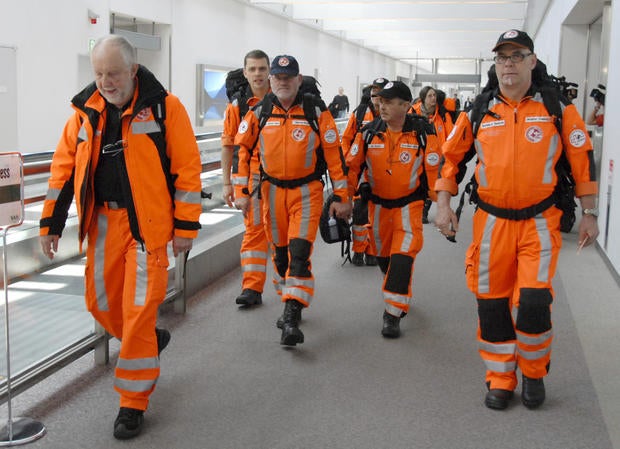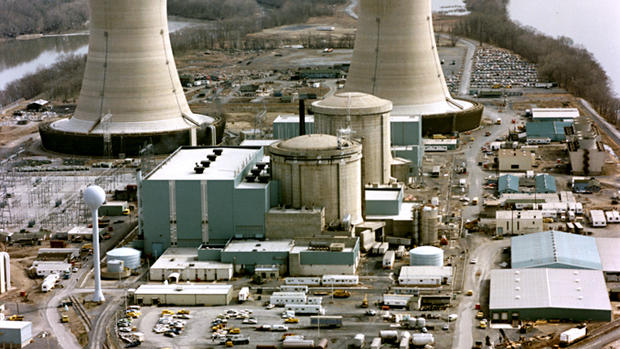Tokyo calm belies Japan's nightmare
This story was filed by CBS News producer Megan Towey.
Flying into Tokyo the Sunday after the double punch of earthquake and tsunami hit Japan, at first blush, it almost seems as if nothing has happened.
Everything is running promptly and efficiently. Families wait outside customs for loved ones arriving and the parking lot is full of passengers and taxis. The only sign that devastation has hit the island nation comes in the form of cases of gear brought in by foreign journalists, and a large group of aid workers in red jackets arriving here to assist in the clean up.
Complete Coverage: Disaster in Japan
Japan's Chernobyl? Quake sparks meltdown fears
Japan death toll hits 1,000; may top 10K
Having been to earthquake ravaged areas before, including Haiti and Chile, the airport is usually the first visual indicator that Mother Nature has unleashed her fury on unsuspecting masses. In Port au Prince, hundreds of desperate quake survivors camped outside the airport begging for financial assistance or employment possibilities. After the Chilean earthquake, the airport was closed for days, leading our crew on a tour from Argentina through the Andes Mountains and into Santiago. When the Santiago airport finally did open, it was only one terminal to handle the long lines of passengers arriving and departing.
Not so in Japan; the taxi driver who chaperones Harry Smith and I to the CBS Tokyo Bureau picks us up in a spotless luxury sedan, decked out in a full suit and tie. He's even wearing white gloves as he navigates the hour long drive from Nurita International Airport to downtown Tokyo. I wasn't sure what to expect, but it certainly wasn't this.
Submit your photos and video to CBSNews.com
How you can help
But, although the damage isn't apparent at first glance, it is there. And beneath the well maintained and steely exteriors, the people here are nervous. Our taxi driver says he hasn't felt any tremors today and it leads him to hope the worst of the aftershocks have passed.
But now he has a new fear, another possible explosion at the Fukushima nuclear power plant has him concerned for his two small children. He says the radio assures Tokyo residents that nuclear radiation concerns are ill-founded, but he's not convinced.
PHOTOS: Japan quake from above, before and after
On the road to Sendai, Japan's Ground Zero
The sun is beginning to set as we pull into downtown Tokyo. In a few hours, we'll set out along the northern coastline to talk to people closer to the quake's epicenter. With Japanese public broadcaster NHK saying some 380,000 people have been evacuated to emergency shelters and millions are without water or electricity, I suspect the morning will bring a whole new story.


